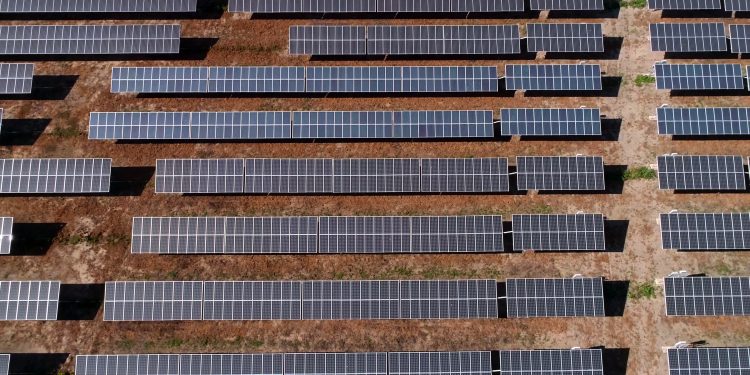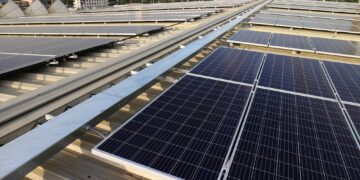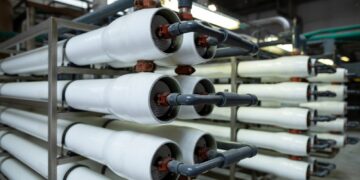The Kingdom of Saudi Arabia has initiated a groundbreaking geographic survey for its renewable energy projects. The implementation of the project has been awarded to national companies charged with setting up 1,200 stations to assess solar and wind energy across all regions of the kingdom.
In a statement marking the project agreements signing, Energy Minister Prince Abdulaziz bin Salman bin Abdulaziz stated that the project, as part of the national renewable energy program, is globally unparalleled in geographic coverage, spanning all Saudi regions.
The project will survey over 850,000 square kilometers, excluding populated areas, sand dunes, and air space restrictions, which equates to the combined landmasses of countries such as Britain and France or Germany and Spain. This scale of geographic survey is unprecedented on the global stage.
The Energy Minister further elaborated that this expansive project will pinpoint the optimal sites for renewable energy projects throughout the kingdom, based on the size of renewable resources and project development priorities.
The data collection will initially encompass the designated area to determine suitable locations for renewable energy projects. Subsequently, the stations will be relocated to confirmed viable sites to continue providing precise and ongoing data for these projects.
Minister Abdulaziz explained that solar radiation monitoring stations, equipped with advanced ground-mounted measurement devices, will record direct natural radiation, global horizontal irradiance, diffuse horizontal radiation, dust deposition, pollutants, ground reflectance, ambient temperature, rainfall, relative humidity, and atmospheric pressure. Wind measurement stations, installed at heights up to 120 meters, will document wind speed, direction, ambient temperature, atmospheric pressure, and relative humidity. The Minister emphasized that data collection will employ cutting-edge technologies, adhering to the highest international quality standards and practices.
The project includes the establishment of a platform within the Ministry of Energy for the continuous monitoring, recording, and digital analysis and processing of measurement data, utilizing artificial intelligence for site evaluation and ranking for renewable energy project suitability.
According to the minister, the accuracy and regular update of the project data render it financeable, meeting the requirements of local and international funding institutions. This will significantly contribute to the immediate allocation of land for renewable energy projects and accelerate the tendering and execution process, which currently entails an 18 to 24-month data acquisition wait.
Access to this data minimizes project risks, enhances investment appeal, and encourages investors to engage in the development and investment of renewable energy projects.
The Minister affirmed that this project underscores the kingdom’s commitment to achieving its ambitious renewable energy production and export targets, optimizing the use of renewable resources across the kingdom, supporting its strategic position to export electric power generated from renewable sources, transitioning towards clean hydrogen production, and aiming to fulfill the optimal energy mix targets for electricity production, with renewable sources comprising about 50 percent by 2030.
Furthermore, the kingdom plans to launch renewable power generation projects with an annual capacity of 20 gigawatts starting from 2024, aiming to reach between 100 and 130 gigawatts by 2030, depending on the growth of electricity demand.









